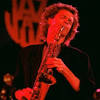Godfather of France's New Wave cinema Jean-Luc Godard dies at the age of 91


The godfather of France's New Wave cinema and bold filmmaking innovator Jean-Luc Godard died on Tuesday at the age of 91, reported French Libération daily.
Arguably the most influential French filmmaker of the post-war era, Mr Godard did not shy away from venturing into taboo themes and applying novel techniques that revolutionised filmmaking, inspiring iconoclastic directors well into the decades following his 1960s heyday.
Bron in Paris, 1930, French-Swiss Jean-Luc Godard started his career as a film critic for the influential magazine Cahiers du Cinéma. He threw down the gauntlet to mainstream French cinema's “Tradition of Quality”, which enshrined established convention rather than innovation and experimentation. He and other critics who shared his drive to innovation banded together and began making their own films, challenging the conventions of traditional Hollywood in addition to French cinema.
It was in 1960 that Mr Godard, with his feature Breathless, set the tone of the newly-born New Wave movement. Being an avid reader of existential and Marxist philosophy, the intellectual penchants resound in his moving images that often touch upon socio-political issues. Amid the upheavals of the late 1960s, Mr Godard became passionate about “making political films politically.”
His political ardour, fuelled by the May ‘68 upheavals in France, would culminate in protest, co-organised by François Truffaut, that shut down the 1968 Cannes Film Festival in solidarity with the students and workers. During the events, Godard stated, making a short reference to Polish filmmaker Roman Polanski, that there was not a single film showing at the festival that represented their causes. “Not one, whether by Milos [Forman], myself, [Roman] Polanski or François. There are none. We're behind the times.”
But with the New Wave already gaining momentum, his politics gradually lost its radicalism. His subsequent films started to focus more on representation and human conflict from a humanist, and a Marxist perspective. Among others, he produced several pieces that directly address the Vietnam War. Meanwhile, his frequent homages and references to cinema history place him deep in Post-Modernism.
France’s “national treasure” The Paris-born film guru gained third place in a 2002 Sight & Sound magazine poll in the critics' top ten directors of all time. He is said to have “created one of the largest bodies of critical analysis of any filmmaker since the mid-twentieth century.” His exploits are believed to have been central to narrative theory and have “challenged both commercial narrative cinema norms and film criticism's vocabulary.” In 2010, Godard was awarded an Academy Honorary Award but did not attend the award ceremony.Mr Godard was married twice. Both of his then-wives, Anna Karina and Anne Wiazemsky, starred in his movies. Ms Karina’s roles in critically acclaimed films such as “Vivre sa vie” (1962), “Bande à part” (1964) and “Pierrot le Fou” (1965), contributed to Filmmaker magazine’s opinion that those images were "arguably the most influential body of work in the history of cinema.”
French President Emmanuel Macron said on Twitter that France has lost a “national treasure”.Ce fut comme une apparition dans le cinéma français. Puis il en devint un maître. Jean-Luc Godard, le plus iconoclaste des cinéastes de la Nouvelle Vague, avait inventé un art résolument moderne, intensément libre. Nous perdons un trésor national, un regard de génie. pic.twitter.com/bQneeqp8on
— Emmanuel Macron (@EmmanuelMacron) September 13, 2022
A recap curio – through his father, he was the cousin of Pedro Pablo Kuczynski, former President of Peru.
source: TVP World


 United Kingdom
United Kingdom Argentina
Argentina  Australia
Australia  Austria
Austria  Brazil
Brazil  Canada
Canada  Chile
Chile  Czechia
Czechia  France
France  Germany
Germany  Greece
Greece  Italy
Italy  Mexico
Mexico  New Zealand
New Zealand  Nigeria
Nigeria  Norway
Norway  Poland
Poland  Portugal
Portugal  Sweden
Sweden  Switzerland
Switzerland  United States
United States 

























